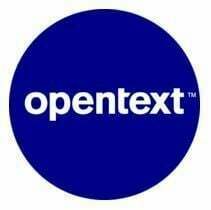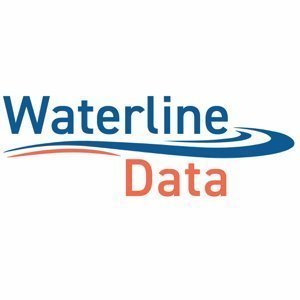4.25
Onna Review
Discover our detailed Onna review. Assess its features, security, pricing, support, updates, and value for money. See if it meets your eDiscovery needs!
Comprehensive overview and target audience
Onna positions itself as a Knowledge Integration Platform, engineered specifically for large enterprises facing the challenge of managing vast, unstructured datasets spread across numerous cloud and on premise applications. Its fundamental purpose is to connect, centralize, index, and ultimately make searchable information from diverse sources including Slack, Google Workspace, Microsoft 365, Box, Zoom, and many others. This creates a unified view, making previously siloed knowledge accessible and actionable. Such capability is indispensable for organizations requiring thorough data discovery for complex litigation support, internal investigations, stringent compliance adherence like GDPR or CCPA, and proactive information governance strategies.
Consequently, Onna’s primary target audience encompasses specific professional groups within these large organizations:
- Corporate legal departments needing rapid, accurate eDiscovery, effective early case assessment strategies, and defensible legal hold processes.
- Compliance and risk management teams tasked with monitoring electronic communications, enforcing internal policies, and responding to regulatory inquiries efficiently.
- IT departments responsible for managing the complex web of data sources, ensuring data security, implementing retention policies, and overseeing platform integrations.
- Information governance specialists focused on classifying enterprise data, mitigating data related risks, and maximizing information value.
Handling incredibly sensitive corporate information necessitates exceptional security measures. Onna emphasizes its robust , incorporating encryption, strict access controls, audit trails, and compliance certifications designed to meet the high standards of enterprise clients and protect data confidentiality and integrity throughout its lifecycle. The platform’s utility is also maintained through continuous development; regular are rolled out to incorporate new data connectors, enhance search algorithms, and address emerging legal tech and compliance demands, ensuring the platform remains a cutting edge solution.
Determining the overall requires analyzing potential cost savings from reduced manual data collection, the significant risk mitigation achieved through comprehensive oversight, and the strategic advantage of leveraging integrated knowledge. While specific costs vary, any should carefully weigh Onna’s unique integration depth against tools offering narrower functionality. Potential buyers often find the investment justifiable when considering the complexity of the problems Onna solves. Finally, recognizing the platform’s sophistication, extensive are available. These resources, including documentation, dedicated support teams, and training sessions, are crucial for ensuring user proficiency and maximizing the platform’s benefits within complex enterprise environments.
User experience and functional capabilities
Navigating a platform as powerful as Onna requires a balance between comprehensive functionality and intuitive user interaction. The overall Onna user experience insights often highlight a platform designed for technical users, such as IT administrators, legal professionals, and compliance officers, rather than casual business users. While its interface aims for clarity given the complexity of managing diverse data sources, initial acclimatization is typically necessary. The sheer volume of data and the granularity of control offered mean that the experience can feel dense, particularly for new users just learning how to use Onna effectively.
Onna’s core strength lies in its functional capabilities, primarily its ability to connect and centralize disparate data sources. Integrating Onna with other tools is fundamental to its value proposition; it seamlessly pulls data from platforms like Slack, Microsoft 365, Google Workspace, Zoom, and more. This integration allows users to perform federated searches across previously siloed information, a critical function for eDiscovery and internal investigations. Setting up these connections, however, requires careful planning and often relies on following a detailed Onna implementation guide. Success depends on accurately configuring connectors and permissions to ensure comprehensive data capture without compromising security.
While powerful, users should be aware of potential challenges. Common problems with Onna can include the initial complexity of setup, the resource requirements for indexing large data volumes, and the nuances of configuring specific data source connectors correctly. Fine tuning search queries to yield precise results across vast datasets also requires practice and understanding. To mitigate these issues and maximize value, adhering to best practices for Onna is crucial. These practices often involve:
- Thorough planning during the implementation phase, clearly defining data sources and scope.
- Providing adequate training for administrators and end users on how to use Onna’s search and analysis features.
- Establishing clear information governance policies to guide data retention and access within the platform.
- Regularly reviewing connector statuses and logs to ensure data is flowing correctly.
Onna continually evolves; regular Onna updates and new features aim to enhance both usability and functionality. These updates might include new connectors, improved search algorithms, enhanced reporting capabilities, or user interface refinements based on feedback. Staying informed about these changes is vital for leveraging the platform to its full potential. Ultimately, Onna provides robust functional capabilities essential for large enterprises managing complex data landscapes. While the user experience demands a learning curve, the platform’s power in unifying and searching enterprise knowledge, supported by ongoing development and adherence to best practices, makes it a compelling solution for its target audience.
Who should be using Onna
Onna is specifically engineered for large organizations grappling with the complexity of managing vast amounts of unstructured data spread across numerous digital platforms. If your enterprise relies heavily on tools like Slack, Microsoft 365, Google Workspace, Zoom, and others, and struggles to unify this information for critical processes, Onna warrants serious consideration. It is not designed for small businesses or teams with simple data needs; its power lies in tackling enterprise scale challenges.
The platform is most beneficial for specific professional groups within these large enterprises who face distinct data related pressures:
- Legal Departments: Teams requiring robust eDiscovery capabilities, efficient early case assessment, and defensible legal hold processes will find Onna invaluable. Managing litigation risks effectively is a core strength.
- Compliance and Risk Management Teams: Professionals tasked with monitoring communications, enforcing policies, and responding swiftly to regulatory audits depend on the comprehensive oversight Onna provides.
- IT Departments: Those responsible for managing data infrastructure, ensuring security, implementing retention policies, and integrating diverse applications see Onna as a central control plane.
- Information Governance Specialists: Individuals focused on classifying data, mitigating risks associated with information sprawl, and ensuring data lifecycle management find Onna’s capabilities align directly with their objectives.
A typical Onna use case scenario involves complex situations like internal investigations, large scale litigation support, or adherence to strict data privacy regulations like GDPR or CCPA. The platform excels when the need to search, preserve, and analyze data across multiple disconnected systems is paramount. However, its comprehensive nature means it is best suited for organizations prepared to invest in implementation and training. As highlighted previously, the user experience is tailored towards technical and specialized users rather than general staff.
Therefore, organizations considering Onna should be those committed to establishing robust information governance frameworks. Maximizing the return on investment requires adopting best practices for Onna, including thorough planning, dedicated user training, and clear policy definition. While demanding, for enterprises facing significant data fragmentation and regulatory scrutiny, Onna provides a uniquely powerful solution to centralize knowledge and manage risk effectively.
Unique Features offered by Onna
Onna offers considerable customization options designed to meet the intricate demands of large scale enterprises. It is important to clarify that evaluating Onna for small businesses typically reveals a mismatch; the platform’s depth, complexity, and pricing structure are firmly targeted at the enterprise market. True customization within Onna starts with the selection and precise configuration of data source connectors. Enterprises choose exactly which platforms like Slack, Microsoft 365, or custom applications to connect, ensuring only relevant data is ingested and managed, optimizing resource use.
Beyond data source selection, administrators can tailor numerous platform aspects. Key customization points include:
Setting granular indexing parameters to control how data is processed.
Defining sophisticated data retention and legal hold policies that automatically align with corporate governance and regulatory mandates.
Establishing detailed role based access controls, ensuring sensitive information is protected and users access only what they need for their specific functions.
Configuring specific metadata fields for enhanced searchability and classification.
Integrating Onna with other tools is fundamental to its value proposition. While standard connectors cover many popular applications, Onnaâs API facilitates deeper, custom integrations with other business systems, legal technology stacks, or analytics platforms, creating a truly unified information environment.
Unique features distinguish Onna significantly. Its ability to perform federated searches across previously siloed, unstructured data sources while preserving crucial context and metadata is paramount for eDiscovery and investigations. It handles complex modern data types effectively. Customizing Onna for business growth in this enterprise setting translates to leveraging these unique integration and search capabilities. This allows organizations to accelerate legal response times, improve compliance posture, mitigate data risks proactively, and unlock insights from previously inaccessible information, thereby supporting scalable operations and informed strategic decisions.
Pain points that Onna will help you solve
Modern enterprises generate vast amounts of data across an ever growing number of applications. This often leads to critical information becoming siloed, making it difficult to find, manage, and utilize effectively. Key business processes like legal discovery, compliance monitoring, and knowledge sharing suffer, introducing risk and inefficiency. Onna is specifically designed to address these pervasive issues head on.
Onna helps organizations overcome several significant challenges:
- Data Fragmentation Across Platforms: Critical information needed for investigations or governance might live in Slack, email, cloud storage, or collaboration tools simultaneously. Searching each system individually is impractical and unreliable. Onna centralizes access, breaking down these frustrating silos.
- Inefficient and Costly eDiscovery Processes: Legal teams struggle with the time and expense required to manually collect, process, and review data from numerous sources for litigation or regulatory requests. This increases the risk of missing vital information. Onna streamlines eDiscovery by providing a single, searchable repository.
- Complex Compliance and Risk Management: Monitoring communications, enforcing internal policies, and responding to regulatory inquiries across scattered platforms is a significant burden. Ensuring adherence to regulations like GDPR or CCPA becomes a major hurdle. Onna provides comprehensive oversight capabilities to mitigate compliance risks.
- Challenges in Enforcing Information Governance: Applying consistent data retention schedules, managing legal holds defensibly, and classifying sensitive data across the enterprise ecosystem is operationally complex. Onna enables centralized policy enforcement and management.
- Difficulty Connecting Diverse Systems: Your IT department may face challenges in seamlessly integrating various data sources. Successfully integrating Onna with other tools provides a unified view without requiring complex point to point connections for each source system.
- Handling Modern Communication Data: Traditional tools often fail to capture the full context of modern collaboration data, such as edits, reactions, and linked files in platforms like Slack or Teams. Onna is built to preserve this crucial context.
Regarding Onna for different businesses sizes, its deep capabilities are engineered for the scale and complexity faced by large enterprises; smaller organizations usually do not encounter these data challenges to the same degree. For large companies, effectively integrating and customizing Onna for business growth translates directly into mitigating legal and compliance risks, reducing operational costs associated with data management, and unlocking valuable insights previously hidden within disconnected systems.
Scalability for business growth
As enterprises expand, their data footprint inevitably grows exponentially. Managing this surge in information across diverse platforms presents a significant operational challenge. Onna is architected from the ground up to handle this expansion, providing essential scalability for business growth. Its infrastructure is designed not just for today’s data volumes but anticipates the increasing complexity and scale of future enterprise knowledge ecosystems. This inherent capacity ensures that critical functions like information governance and eDiscovery do not become bottlenecks as your organization evolves.
The platform’s scalability extends across multiple dimensions. Technically, it can ingest and index petabytes of data from an ever wider array of sources. As your business adopts new communication tools or cloud services, Onna’s flexible connector framework allows for relatively seamless integration, preventing the re emergence of data silos. This ability to absorb new data streams without compromising performance or searchability is fundamental. Customizing Onna for business scalability involves configuring these connections and processing rules efficiently to match your specific growth trajectory and evolving application landscape.
Furthermore, Onna’s adaptability supports organizational scaling. Role based access controls and customizable workflows can be adjusted as teams grow, merge, or restructure. Policies for retention, legal holds, and data classification can be dynamically updated to reflect new business units, geographical expansions, or changing regulatory demands. This ensures governance remains consistent and effective across an expanding enterprise. Proper setup allows the platform to grow alongside your company’s structure and requirements.
Ultimately, Customizing Onna for business growth means leveraging a platform that maintains efficiency and control amidst increasing complexity. It allows legal, compliance, and IT teams to manage escalating data volumes and user demands without proportional increases in manual effort or risk. This capability is crucial for large organizations planning acquisitions, entering new markets, or simply navigating the rapid data generation inherent in modern business. Onna provides the robust, scalable foundation needed to manage information confidently during periods of significant expansion.
Final Verdict about Onna
Onna presents itself as a specialized Knowledge Integration Platform, meticulously engineered for the intricate data ecosystems found within large enterprises. Its core mission is clear: to connect, centralize, and make searchable the vast amounts of unstructured data scattered across applications like Slack, Microsoft 365, Google Workspace, and many others. This unified approach is invaluable for complex processes including eDiscovery, compliance monitoring, internal investigations, and robust information governance, effectively dismantling data silos.
The platform’s sophisticated nature dictates its target audience. It is explicitly designed for legal departments, compliance officers, IT teams, and information governance specialists within large scale organizations who grapple with significant data management challenges daily. Consequently, the user experience, while powerful, requires technical proficiency and acclimatization. It is a tool for experts, offering deep functional capabilities rather than simplified interactions for general users. Potential users must anticipate a learning curve to leverage its full potential effectively.
Onna directly confronts critical enterprise pain points like data fragmentation, inefficient eDiscovery, complex regulatory adherence, and inconsistent policy enforcement across disparate systems. Its strengths lie in extensive customization options, allowing precise configuration of data connections, access controls, and retention policies. Furthermore, its architecture is built with scalability in mind, ensuring it can handle the exponential data growth characteristic of expanding businesses without sacrificing performance or control.
Our final verdict on Onna recognizes it as a uniquely potent solution for its specific niche. For large enterprises facing overwhelming data fragmentation and stringent regulatory demands, Onna offers unparalleled capabilities to centralize knowledge and manage risk. While the complexity and resource requirements for implementation and training are significant considerations, the platform’s ability to streamline critical legal and compliance processes, alongside its scalability and customization, justifies the investment for organizations equipped to harness its power. It successfully addresses a fundamental challenge in modern enterprise information management.
Advantage
Disadvantage
Access all your enterprise data in one place
Search instantly across all connected applications
Simplify legal discovery and data collection processes
Enhance data compliance and retention policy enforcement
Connects diverse enterprise apps like Slack, M365
Disadvantage
Can be expensive for smaller teams
Steeper learning curve for non-technical users
Initial setup requires technical expertise
May lack connectors for niche applications
Search customization can be complex
Rating
Product Support
Web Based
Windows
Mac OS
Linux
Android
iOS
Phone Support
Email/Help Desk
AI Chat Bot
Live Support
24/7 Support
Forum & Community
Knowledge Base
Live Online
Documentation
Videos
In Person
Webinars
Company: Onna Technologies, Inc.
Email: Not Available
Address:
230 Park Avenue, Suite 320, New York, NY 10169, USAPhone: #ERROR!
Implementation
Web Based
Windows
Mac OS
Linux
Android
iOS
Support
Phone Support
Email/Help Desk
AI Chat Bot
Live Support
24/7 Support
Forum & Community
Knowledge Base
Training
Live Online
Documentation
Videos
In Person
Webinars
Group text
Company: Onna Technologies, Inc.
Email: Not Available
Address:
230 Park Avenue, Suite 320, New York, NY 10169, USA
Phone: #ERROR!
Alternative Products
Frequently Asked Questions
What is Onna Review?
Onna Review is a cloud-based eDiscovery and data review module built within the Onna Knowledge Integration Platform, designed specifically for analyzing, reviewing, and producing electronically stored information (ESI) from various connected sources for legal, compliance, and investigative purposes.
How can Onna help me?
Onna Review can help you by centralizing data from disparate cloud and on-premise applications (like Slack, Google Workspace, Microsoft 365, Box, etc.), making it searchable and reviewable in one place, thereby streamlining eDiscovery, internal investigations, and compliance processes, reducing data collection complexities, and enabling faster, more informed decisions during review cycles.
Who is Onna Review designed for?
Onna Review is primarily designed for corporate legal departments, compliance teams, IT professionals involved in data governance, forensic investigators, and law firms handling eDiscovery and information governance matters who need to efficiently process, search, review, and produce large volumes of disparate digital information.
What are the main features of Onna Review?
Key features include robust data processing and indexing from connected sources, advanced search capabilities (including keyword, metadata, and conceptual search), customizable filters and facets, document tagging and annotation tools, redaction capabilities, collaboration features for review teams, audit trails, and various export options for production or further analysis.
How does Onna Review integrate with other tools?
Onna Review leverages the core strength of the Onna platform, which integrates directly via APIs with a wide range of cloud collaboration, communication, and storage applications (e.g., Slack, Microsoft 365, Google Workspace, Box, Dropbox, Jira, Confluence, Zoom) allowing for near real-time data collection and review without traditional export/import processes.
What is the pricing structure for Onna Review?
Onna typically utilizes a custom pricing model based on factors such as data volume under management, the number of data sources connected, the number of users, and the specific features or modules required; prospective customers usually need to contact Onna’s sales team for a tailored quote.
Is there a free trial or demo available?
While a traditional self-service free trial might not be standard for enterprise platforms like Onna, they typically offer personalized demos where potential users can see the platform in action, discuss their specific needs, and understand its capabilities firsthand.
Is Onna worth it?
Whether Onna Review is worth it depends heavily on your organization’s specific needs, data landscape complexity, and review volume; for organizations struggling to manage and review data across numerous modern collaboration tools for legal and compliance purposes, its powerful integration capabilities and centralized review environment can offer significant time savings, risk reduction, and efficiency gains, potentially justifying the investment compared to traditional, fragmented approaches.






